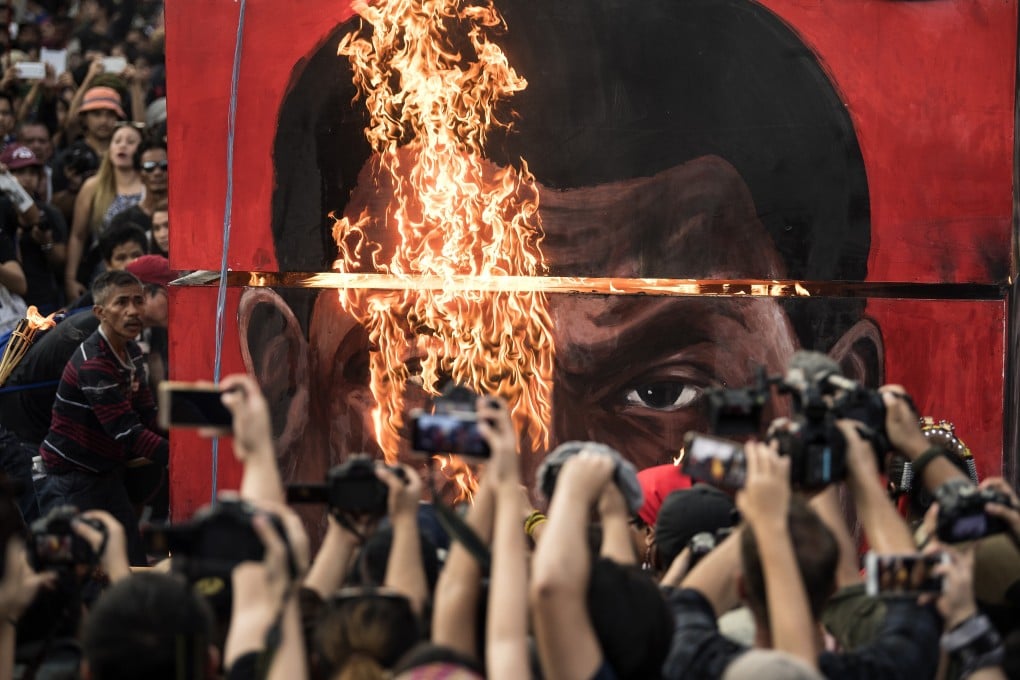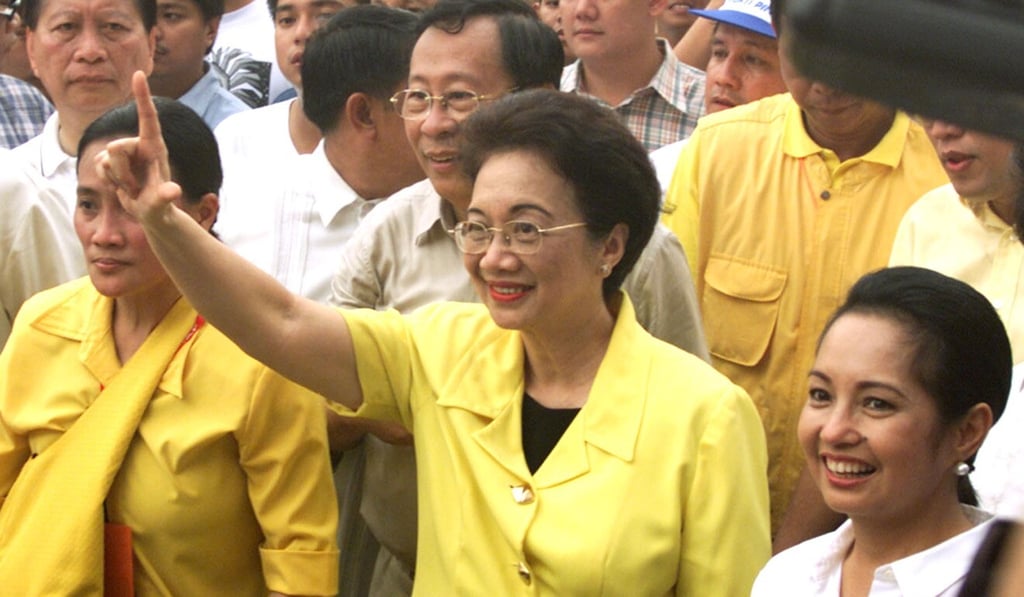Opinion | Philippine ‘People Power’ at 35: a strange metamorphosis under Duterte
- Despite his ‘war on drugs’, attacks on media and ‘red-tagging’ of political opponents, Rodrigo Duterte is more closely linked to People Power than often thought
- Most Filipinos continue to support Duterte’s claim that he is their true champion even though his promises for ‘real change’ have proved hollow

Even where the origins of the term were forgotten, Philippine “People Power” became a template for pro-democracy uprisings in Asia – in South Korea in 1987, Myanmar in 1988, China in 1989 and Indonesia in 1998 – as well as beyond, with former dissident and Czech president Václav Havel having thanked Filipinos for helping inspire the 1989 Eastern European democratic revolutions.
Duterte even paid tribute to Marcos – granting his family’s wish for a “hero’s burial” denied by his predecessors after the dictator’s death in 1989.
Yet Duterte is more closely linked to Philippine People Power than is commonly realised. Duterte’s mother, Soledad, was a strong supporter of Cory Aquino. After becoming president, Cory appointed Rodrigo deputy mayor of the southern city of Davao, and he became mayor just two years later. When Duterte ran for president in 2016, he was the candidate of a party founded to oppose the Marcos dictatorship. Even the current targeting of leftist activists through “red-tagging” of supposed communist sympathisers fits a pattern of human rights abuses that occurred during previous presidencies (including the administrations of Cory and Benigno Aquino) that were dependent on the armed forces to shore up political power.

